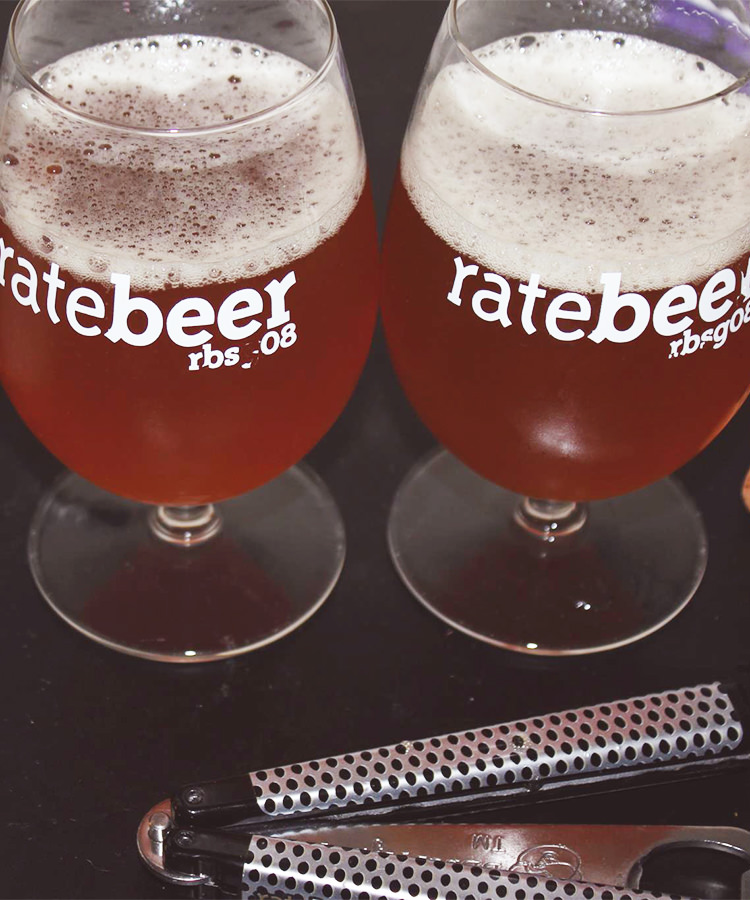Anheuser-Busch InBev, the largest brewer in the world, is building itself a media empire. RateBeer, one of the largest user-generated beer rating websites, announced that it was purchased in part by ZX Ventures, AB InBev’s investment company. The partial sale actually happened nine months ago, but it wasn’t made clear to the public until June 1. Many beer writers were outraged, as expected, but so were craft beer brewers. So outraged were some brewers that they asked straight-up to be taken off RateBeer.
It started with Sam Calagione, the founder of Dogfish Head. On the brewery website, Calagione wrote that he was troubled by the news of the RateBeer buyout. He called it a “blatant conflict of interest” and a “direct violation of the Society of Professional Journalists (SPJ) Code of Ethics.” He even went so far as to cite the “Act Independently” section, which includes refusing gifts and favors, not paying for access to news, denying favor to advertisers and owners, and, most importantly in this case, making sure to “prominently label sponsored content.”
AB InBev’s part-ownership of RateBeer (as well as its ownership of publications like October and The Beer Necessities), is therefore unethical, says Calagione, and thus, Dogfish Head wants no part of it. As of Wednesday, Black Project Ale, Harpoon, and Cantillon also asked to be removed from RateBeer.
There are a couple of problems with this, though. Calagione isn’t exactly an angel of ethics. As he notes in the same blog post, he was the executive editor of a craft beer print magazine called Pallet. He maintains that neither he nor Dogfish Head held a stake in the company. But that’s like if the executive editor of a small town newspaper also just happened to be the mayor. The mayor might not profit directly from his position, but he sure does profit by ensuring positive coverage that brings people to his town and makes people think his town is a great place to live. I’m in no way suggesting that Calagione was acting unethically, but context is necessary if someone is going to level charges against a company.
His qualms with RateBeer, however, are in a different vein entirely. The website uses community- generated reviews, and journalism ethics don’t apply to user-generated reviews, because users aren’t journalists. Yelp reviews, for comparison’s sake, aren’t guided by the SPJ ethics. But the comparison is useful in figuring out exactly what the ethical problem is. It’s not a journalistic one — but it’s not great business ethics, either. If Yelp was owned by McDonalds, and every search pointed a person first and foremost to the nearest McDonalds, then that would be shady business.
AB InBev is the McDonalds of beer, and the company’s track record of abusing power and using its seemingly limitless budget to silence competition is concerning. So while it’s hard to get behind every part of Calagione’s blog post on why he wants to be taken off RateBeer, the general premise makes sense. It’s hard to trust a ratings website that’s owned by the same company that comes off as the Darth Sidious of the beer Empire.
RateBeer, for its part, said it’s not taking down any reviews.
In other beer news:
Big beer feels the squeeze from big liquor
The NFL finally lifted the ban on liquor advertisements (with a few restrictions), Ad Age reports. America’s favorite pastime — watching football — will no longer be entirely owned by the big three: Budweiser, Miller, and Coors.
This is coming at a time when liquor is gaining market share (28 percent in 2003, and 32 percent in 2016) and beer is decreasing (58 percent in 2003, and 50 percent in 2016). So even though liquor will only be allowed four ads per game (“treated as second-class citizens compared with beer” is how Ad Age succinctly put it), it is posing a real threat to macro breweries, which are already losing market share to craft beer.
But what does this mean? It means that liquor is being normalized. And why not? There are plenty of low-alcohol cocktails. Why can’t we all just get along.
Bars are dying, restaurants are thriving, beer is disappearing
Neighborhood bars declined by more than 12,500 bars since 2004, while neighborhood restaurants increased by nearly 61,000, according to Beer Business Daily (paywall). That’s very bad for beer.
Seventy percent of people in neighborhood bars drink beer while 52 percent in restaurants order beer. No matter what the experts say, people can’t get behind the fact of pairing beer with their meals. It’s the worst for macro beer, slightly less worse for imports, and the least bad (but still bad) for craft beer.
Don’t let everything get you down though
Lots of downer beer news this week. Here’s a video of a peacock going all out in an L.A. wine shop.
